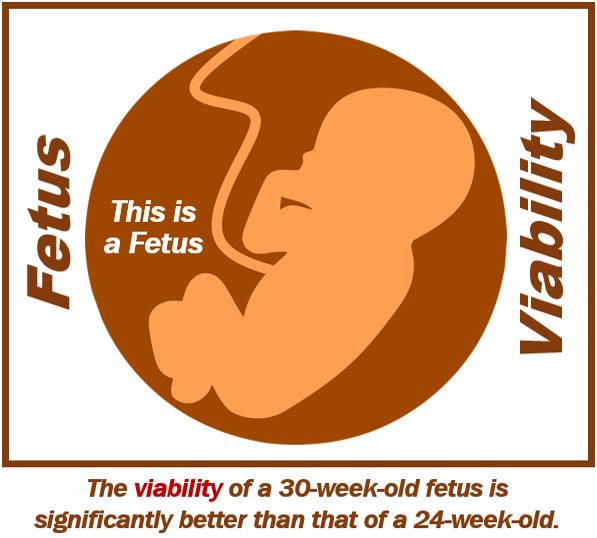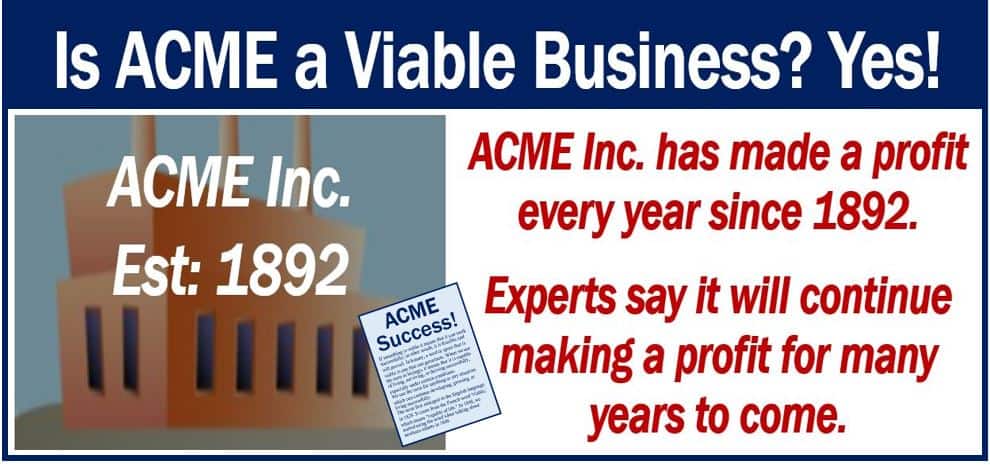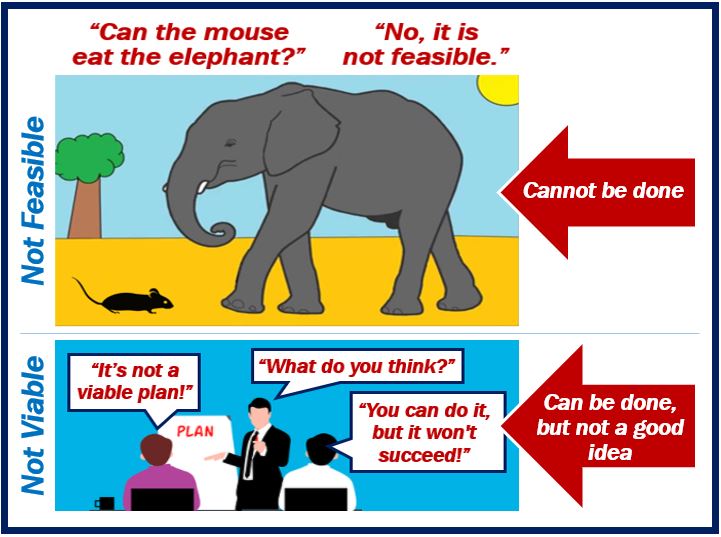What is viable? Definition and examples
If something is Viable it means that it can work successfully; in other words, it is feasible and will prevail, it has all the necessary elements or conditions to be successful or thrive in the long term. In botany, a seed or spore that is viable is one that can germinate.

When we use the term in biology, it means that it is capable of living, surviving, or thriving, especially under certain conditions.
We use the term for anything or any situation which can continue developing, growing, or living successfully.
The term first emerged in the English language in 1828. It came from the French word ‘Viable,’ which means “capable of life.”

In 1848, we started using the word when talking about newborn infants in 1848. If a newborn or fetus is viable, it means that he or she can survive outside the uterus after birth, possibly with the support of modern medicine.
A viable business
When we use the term to describe a company, it means that it is able to survive and succeed. In other words, the business continues making a profit year after year – it is profitable. It is a going concern. When a company has more money coming in than going out, it is making a profit.
In business, we also use the term when describing a plan if we think it is realistic and therefore is likely to succeed.
The Financial Times’ glossary, ft.com/lexicon, has the following definition of the term:
“A viable plan, system, suggestion, etc. is realistic and therefore may succeed.”
“A viable company or organization is making a profit and can continue to do business.”

Viable vs. feasible
Although the two words are very similar, their meanings are not quite the same. We use them in different situations.
If we say that something is feasible, we mean that it is possible to do. For example, if somebody asks: “Is it feasible to build a house with this material?” I might answer: “Yes, it is. However, it will be a small house, with perhaps two bedrooms.”
Feasible means that it is possible to do – it can be done.

Viable, on the other hand, focuses on whether something will succeed. If a plan is not viable, it means that it will not succeed. Perhaps I can do it, but doing it is not a good idea. A plan that is not feasible, however, cannot be done.
A seed that is not viable is a seed that cannot germinate. A seed that is not feasible, on the other hand, is a seed that does not exist because it is impossible to create (we’d rarely use the word ‘feasible’ in this context).
Viability study vs. feasibility study
-
Viability study
A viability study is an in-depth investigation of a business idea. Specifically, whether it might be profitable. If so, the study determines whether we should convert it into a business enterprise.
The principle of viability extends to ecological and environmental contexts, where it denotes the ability of an ecosystem to maintain and sustain its functions and biodiversity over time.
-
Feasibility study
A feasibility study is an assessment of how practical a proposed plan or method is. It is an analysis that determines whether it is possible to complete a project successfully. Many feasibility studies today, however, include trying to determine whether a proposal or project is also capable of producing long-term profits.
Derivatives of “viable”
In business, scientific, and everyday English, there are many derivatives of the word “viable.” Let’s have a look at some of them:
-
Viable (adjective)
Capable of working successfully; feasible.
Example: “The committee approved the plan after determining it was a viable option.”
-
Nonviable (adjective)
Not capable of working successfully; not feasible.
Example: “The proposal was quickly dismissed as a nonviable solution.”
-
Inviable (adjective)
Not capable of living, growing, or developing.
Example: “The harsh environmental conditions left the seeds inviable.”
-
Viability (noun)
The ability to work successfully.
Example: “The viability of the project was confirmed by the positive outcomes of the pilot test.”
-
Nonviability (noun)
The state of not being capable of successful continuation or growth.
Example: “The nonviability of the business model became apparent after the first fiscal quarter.”
-
Viabilize (verb)
To make capable of working successfully; to make viable.
Example: “The new strategy aims to viabilize the struggling mobile division.”
-
Viably (adverb)
In a way that is capable of working successfully.
Example: “With the revised budget, we can now compete more viably in the market.”
Video – What is Viable?
This video presentation, from our YouTube partner channel – Marketing Business Network, explains what ‘Viable’ is using simple and easy-to-understand language and examples.

